The Risks Agriculture Faces In Developing Countries IELTS Reading Answers
2 min read
Updated On
-
Copy link
Table of Contents

Limited-Time Offer : Access a FREE 10-Day IELTS Study Plan!
The Academic passage ‘The Risks Agriculture Faces In Developing Countries’ is a reading passage that appeared in an IELTS Test.
Ideally, you should not spend more than 20 minutes on a passage. Let’s see how easy this passage is for you and if you’re able to make it in 20 minutes. If not, try more IELTS reading practice tests from IELTSMaterial.com
The Risks Agriculture Faces In Developing Countries
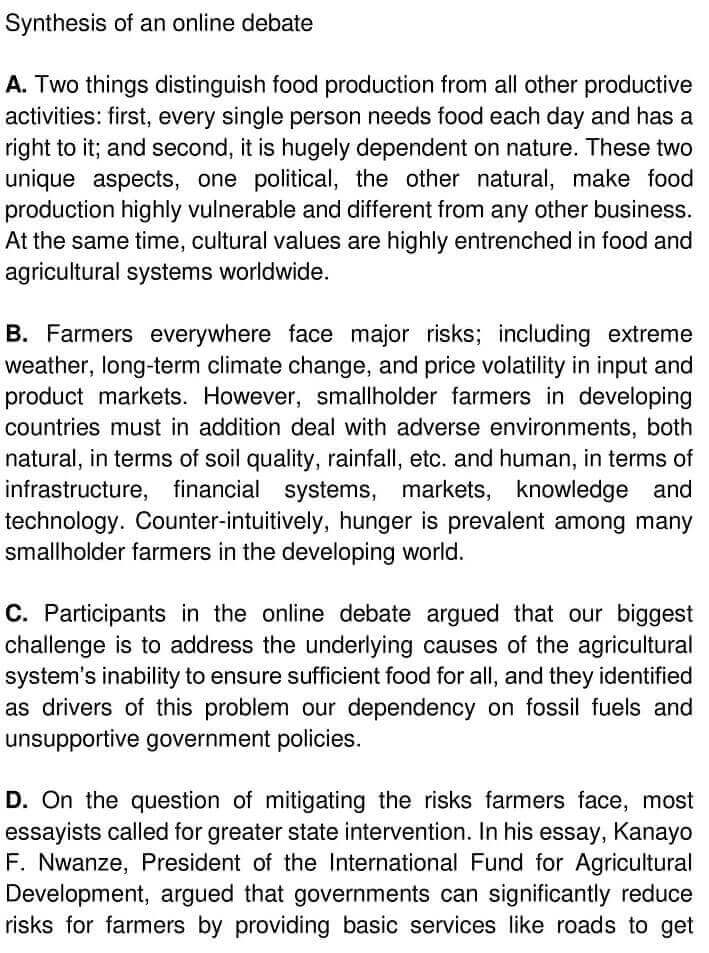
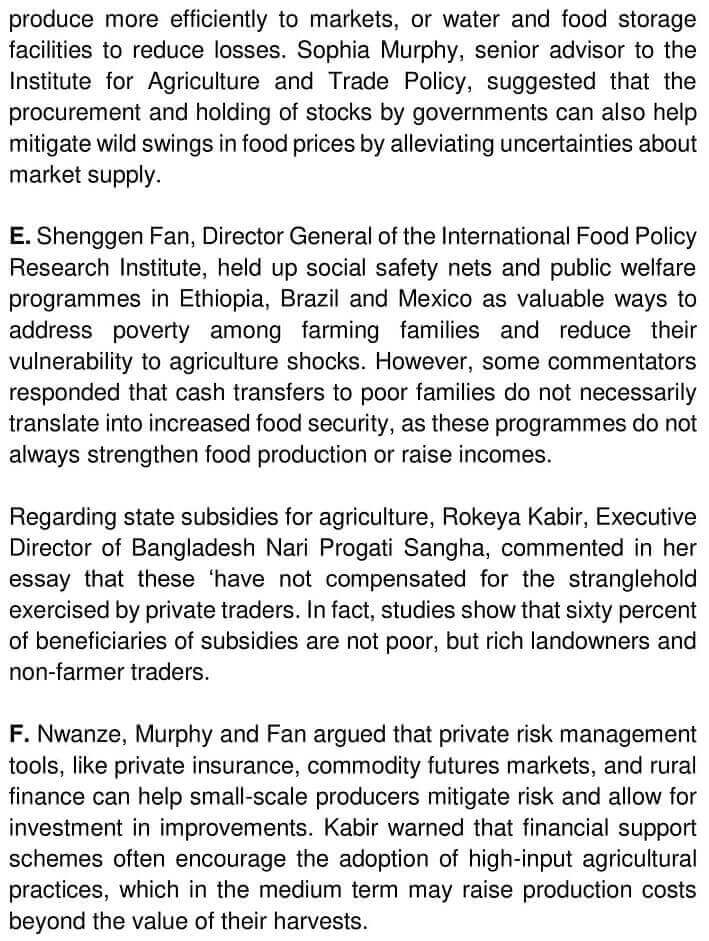
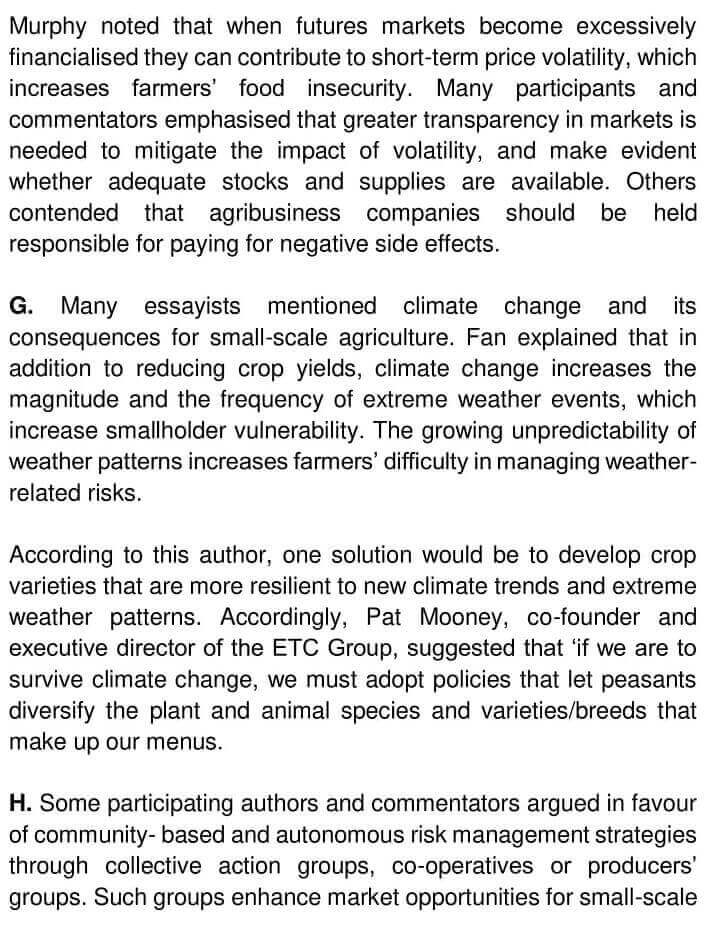
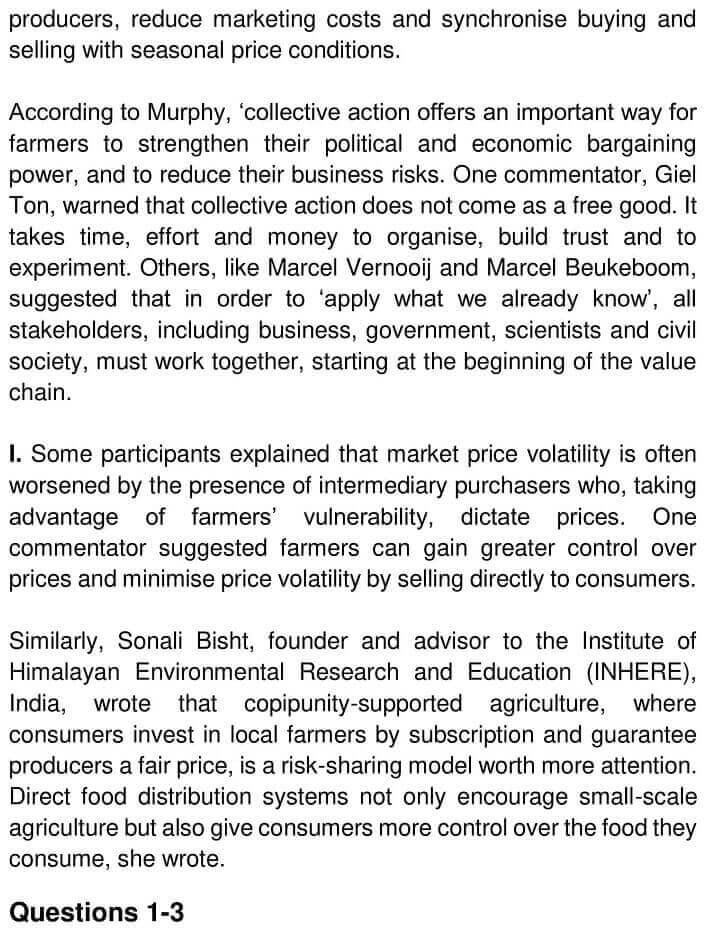
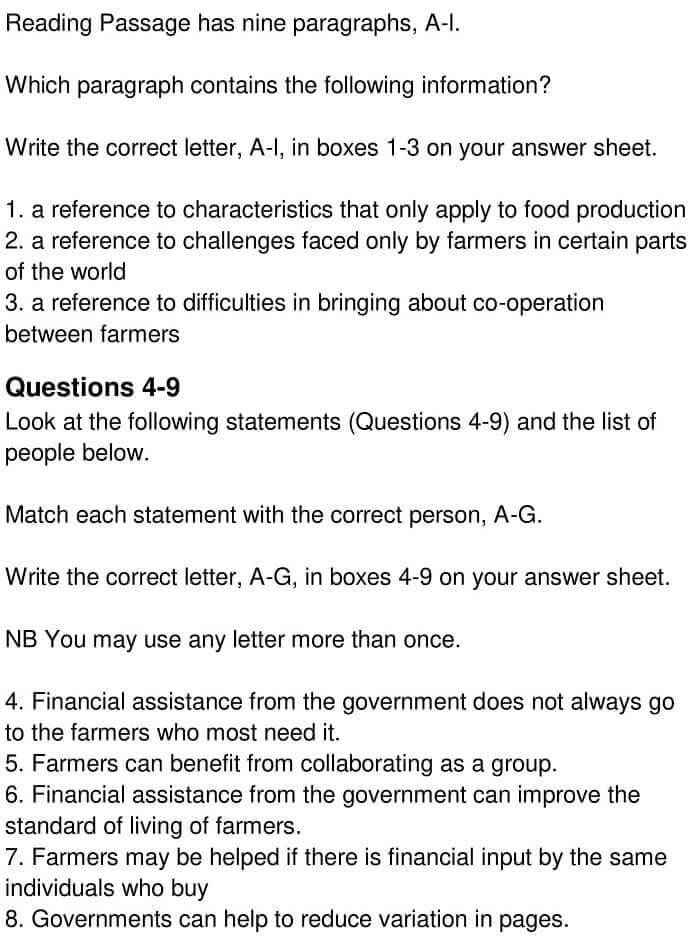
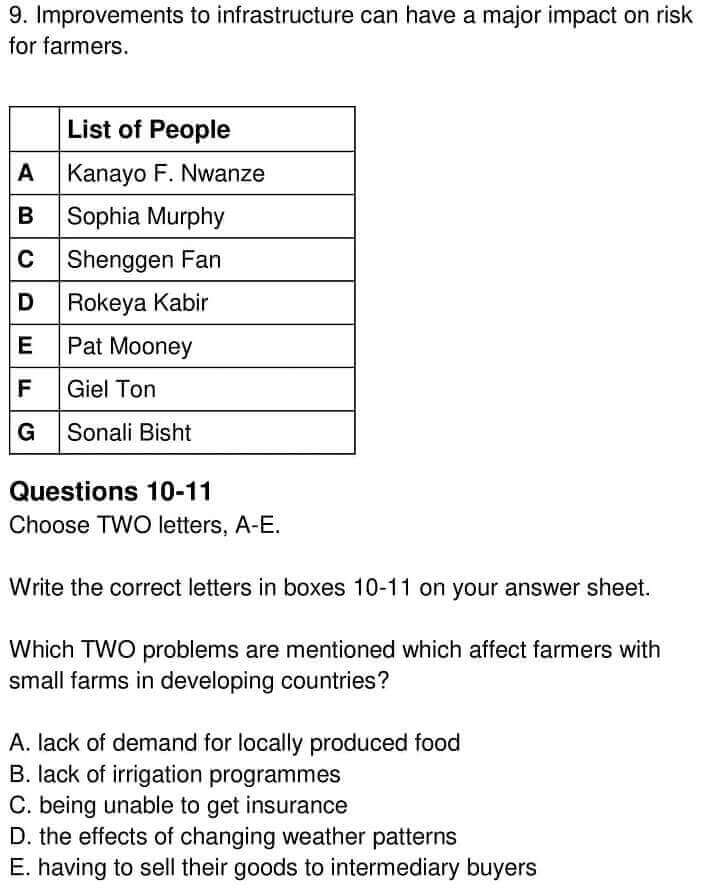
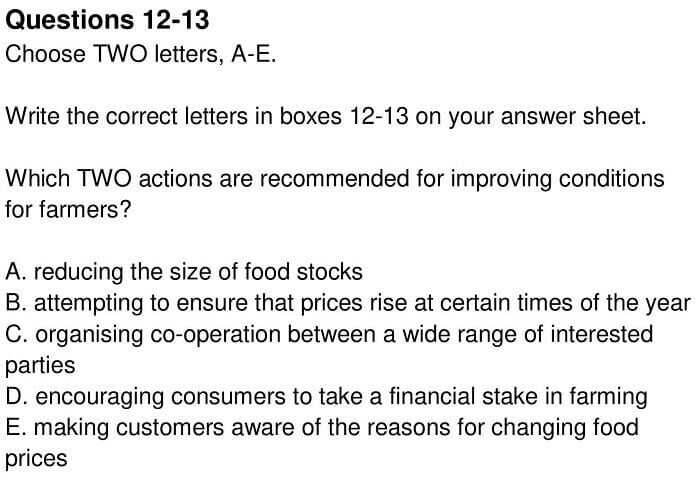
Answers
Unlock Answers
| Question number | Answer | Keywords | Location of keywords |
|---|---|---|---|
| 1 | A | Two things distinguish food production from all other productive activities: first, every single person needs food each day and has a right to it; and second, it is hugely dependent on nature. | Paragraph A;
Line 1 |
| 2 | B | smallholder farmers in developing countries must in addition deal with adverse environments | Paragraph B;
Line 2 |
| 3 | H | It takes time, effort and money to organise, build trust and to experiment | Paragraph H;
Line 5 |
| 4 | D | In fact, studies show that sixty percent of beneficiaries of subsidies are not poor, but rich landowners and non-farmer traders. | Paragraph E;
Line 4 |
| 5 | B | According to Murphy, ‘collective action offers an important way for farmers to strengthen their political and economic bargaining power, | Paragraph H;
Line 3 |
| 6 | C | Shenggen Fan, Director General of the International Food Policy Research Institute, held up social safety nets and public welfare programmes in Ethiopia, Brazil and Mexico as valuable ways to address poverty among farming families and reduce their vulnerability to agriculture shocks | Paragraph E;
Line 1 |
| 7 | G | copipunity-supported agriculture, where consumers invest in local farmers by subscription and guarantee producers a fair price, | Paragraph I;
Line 3 |
| 8 | B | the procurement and holding of stocks by governments can also help mitigate wild swings in food prices by alleviating uncertainties about market supply. | Paragraph D;
Line 3 |
| 9 | A | governments can significantly reduce risks for farmers by providing basic services like roads to get produce more efficiently to markets, or water and food storage facilities to reduce losses | Paragraph D;
Line 2 |
| 10 | D | climate change and its consequences for small-scale agriculture | Paragraph G;
Line 1 |
| 11 | E | the presence of intermediary purchasers who, taking advantage of farmers’ vulnerability, dictate prices | Paragraph I;
Line 1 |
| 12 | C | all stakeholders, including business, government, scientists and civil society, must work together, starting at the beginning of the value chain. | Paragraph H;
Last line |
| 13 | D | community-supported agriculture, where consumers invest in local farmers by subscription and guarantee producers a fair price, | Paragraph I;
Line 3 |
Check More IELTS Reading Answers
Also check :
Practice IELTS Reading based on question types

Start Preparing for IELTS: Get Your 10-Day Study Plan Today!
Recent Articles

Nehasri Ravishenbagam

Haniya Yashfeen

Haniya Yashfeen

Haniya Yashfeen
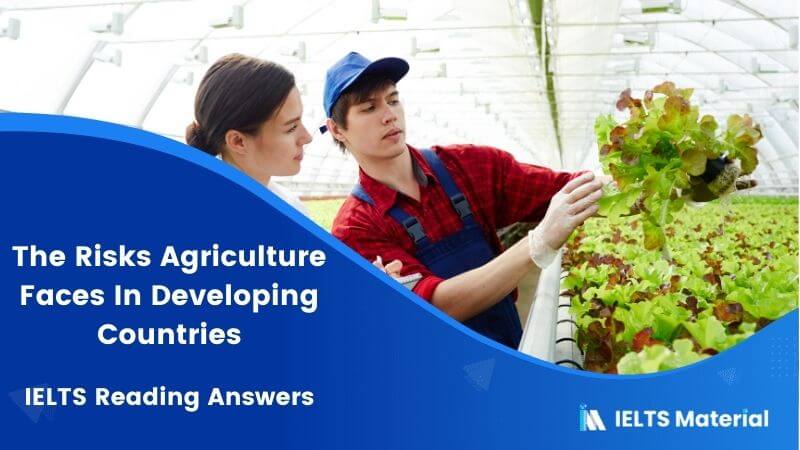



Post your Comments